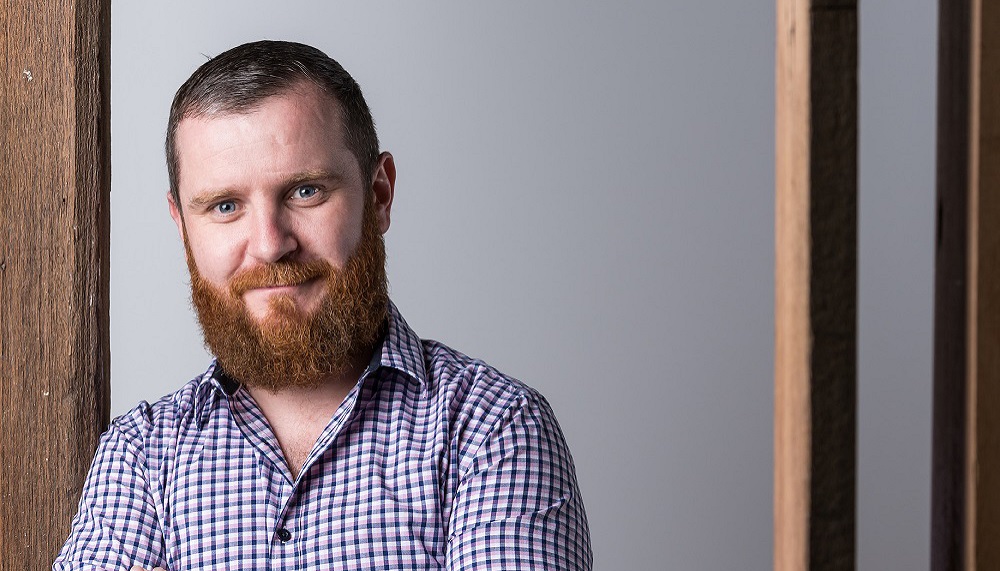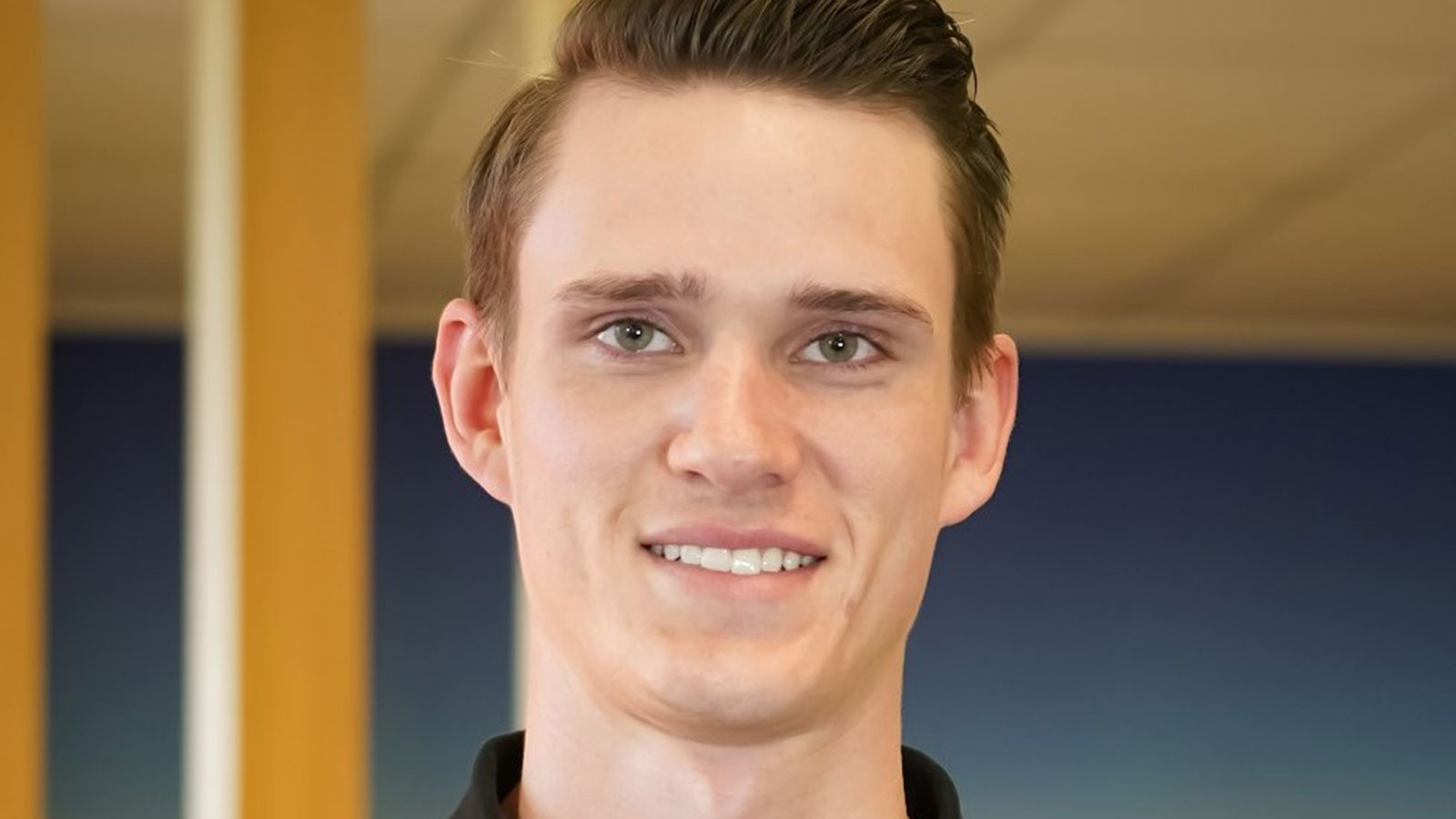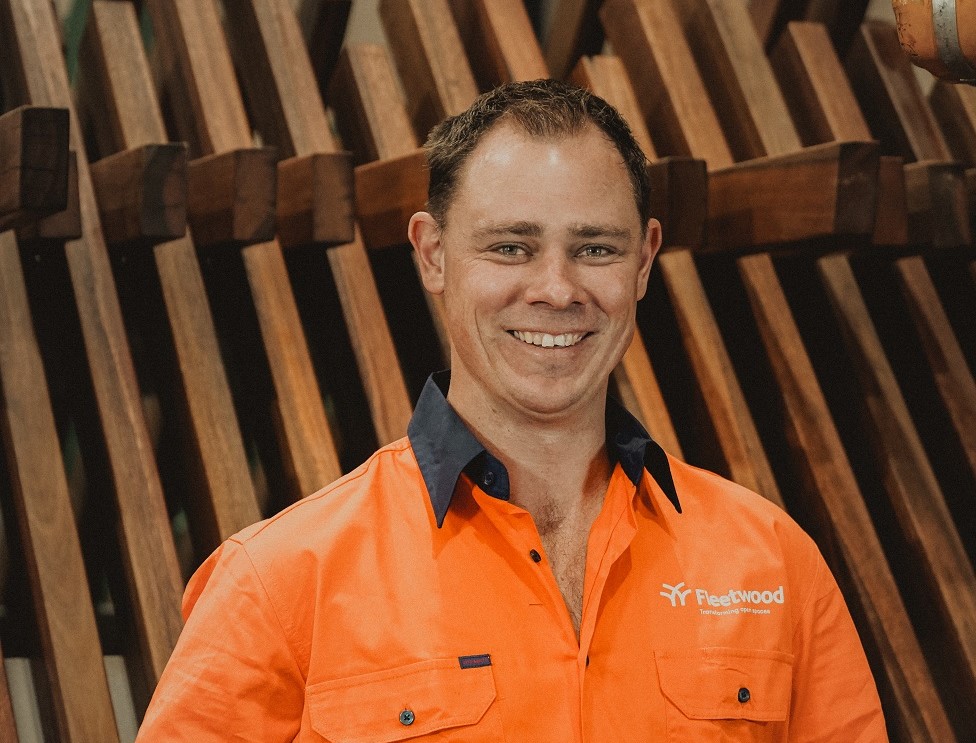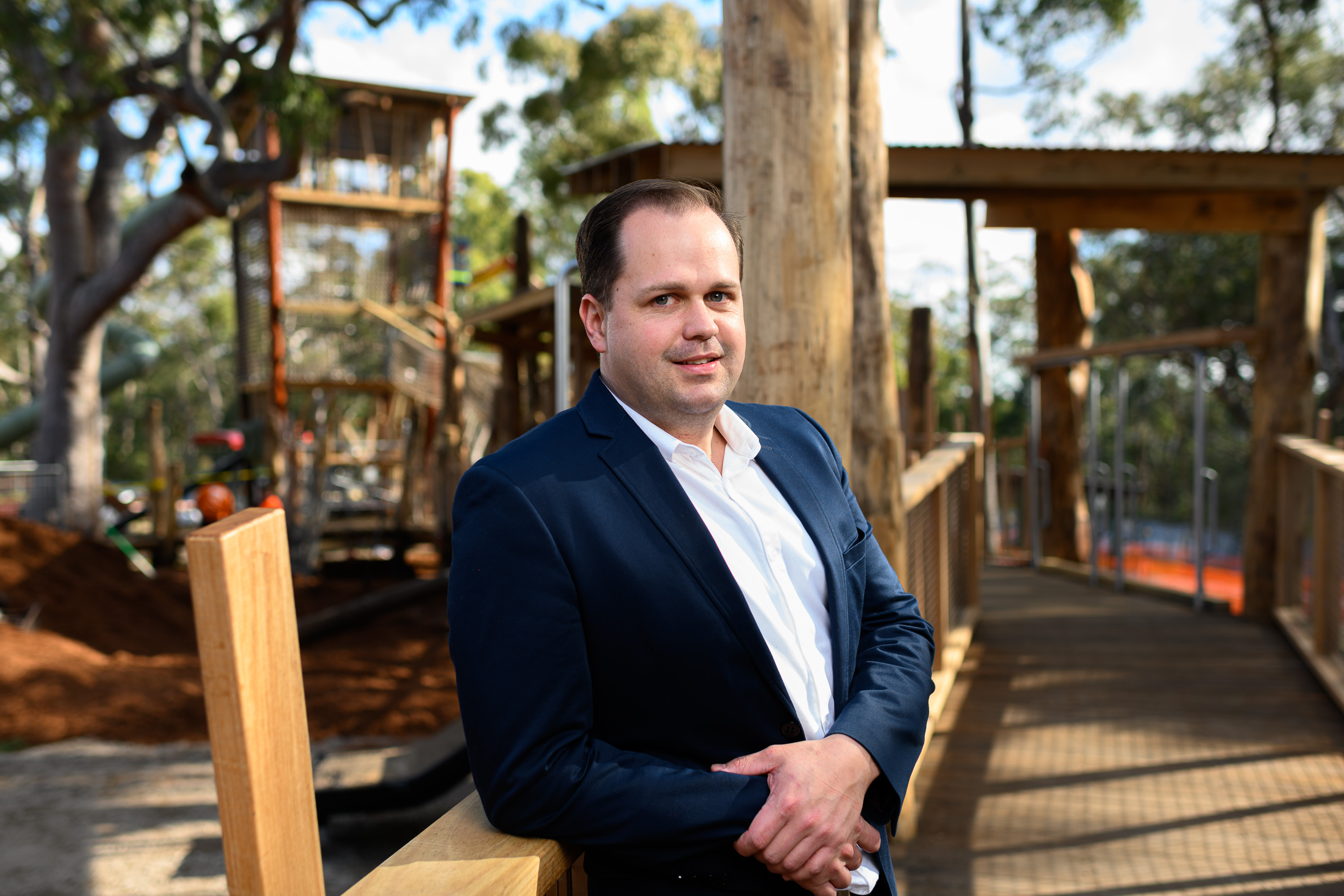Nov 12 2020, by Fleetwood Urban (Marketing)
A coffee with Denis Hartnett: Drafting Manager
Hello Denis. You joined Fleetwood back in 2017 and today have the twin roles of Design Coordinator and Drafting Manager, based at our Brisbane office. What does a ‘typical’ day look like for you?
Things are pretty busy at the moment in Design and Drafting! Not too many days are typical, which is a good thing. I catch up with Ian Joyce (Fleetwood Director) every morning to make sure we’re focusing our attention in the correct areas, especially on the urgent and high priority projects. Most days I could have my head in anything from 4-20 different projects, all at different stages, all with different needs. My priority is always making sure our team of Detailers are progressing well and clear on the projects they’re working on. I’ll talk with them every day, sometimes multiple times. I also speak with our Project Managers and Kevin Dingley (Fleetwood Manufacturing Manager) most days, and others as needed. Recently, due to our Sydney-based delivery teams being unable to fly into Queensland, I’ve also attended site a few times. It’s nice to get out from the office now and again!
You studied Engineering in Limerick, Ireland. How did you come to be working with Fleetwood here in Australia?
I moved to Australia back in 2010. The downturn in the Irish economy meant it was almost impossible to remain in the construction industry at that time. I spent four years with a detailing company in Brookvale on Sydney’s Northern Beaches, before moving to a different company in Mosman, where I became the Detailing Manager. It was there I first became aware of Fleetwood, as they were contracting to us. I joined Fleetwood full-time in August 2017. They were in such a niche and interesting area of construction, it was a no-brainer for me.
As a qualified Civil Engineer, how does that help you as a Drafting Manager?
Studying Civil Engineering gives you a broad and wide-ranging knowledge of multiple areas of construction, without focusing all your attention on any one specific area. I remember studying Structural Engineering, Concrete, Surveying, Drafting, Technical Graphics, Economics, Maths, along with many other subjects. I think it’s that wider reaching range of Civil Engineering that allows me to consider as much as I can when dealing with our projects, because it most definitely is not just about getting details on a page. Huge amounts of thought and discussion go into the final drawings we use to build from.
What qualities are important in your job?
Passion, ownership, communication and, most importantly, attention to detail. Fleetwood is lucky to have a lot of people who are truly passionate about their work. When you have that, and you care, the results are usually good. I also think it’s important to own what you’re doing, regardless of the task. Lack of ownership often causes confusion and uncertainty, so I try to make sure it’s always clear who is doing what. Communication is key. I’m probably one of the louder people here at Fleetwood (laughs) but I’m going to blame that on culture. Finally, it’s all about the detail in my role. There’s very little room for error and trying to make life easier for everyone who works from our designs and details is always top priority.
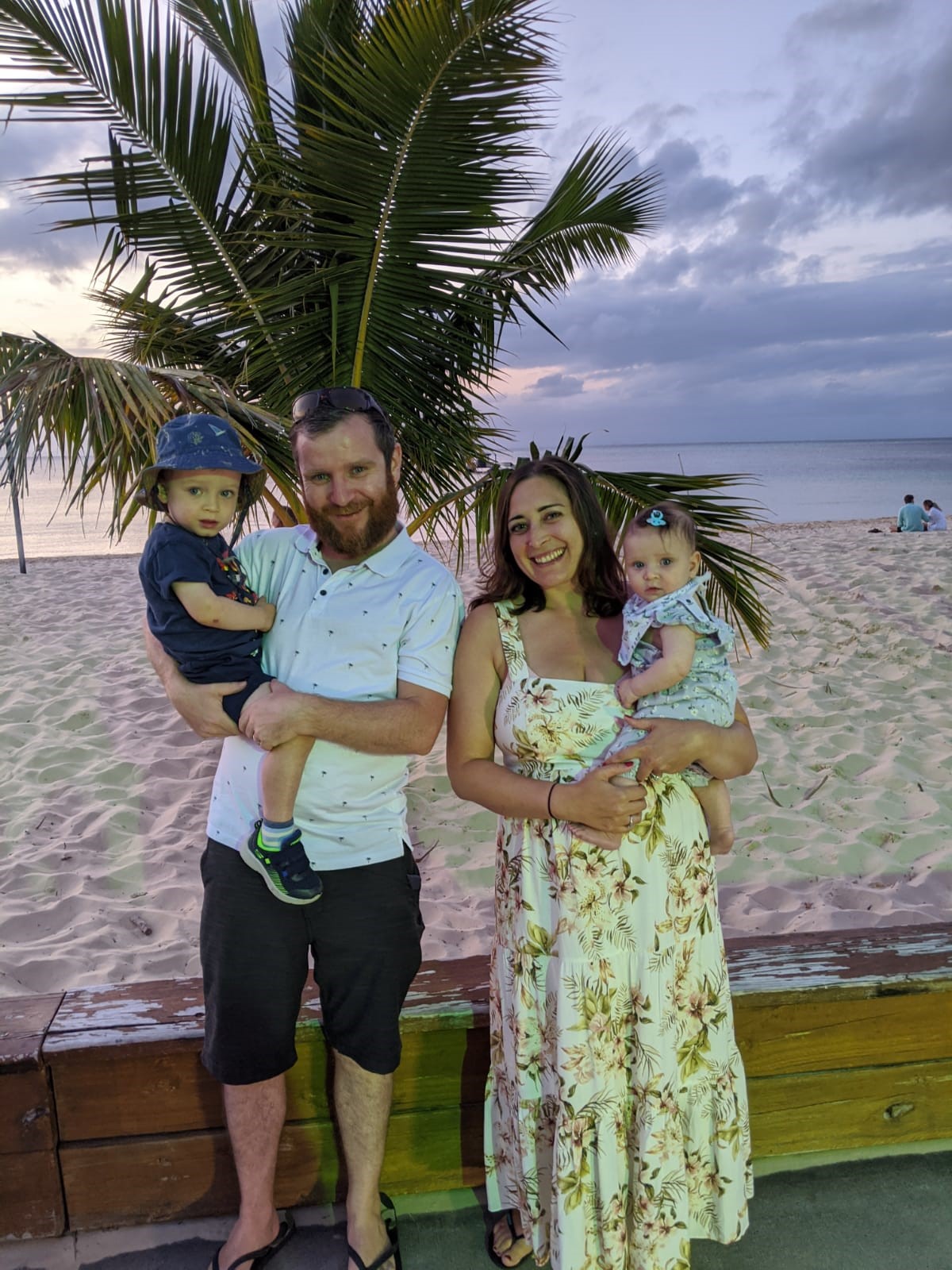
Denis with his family
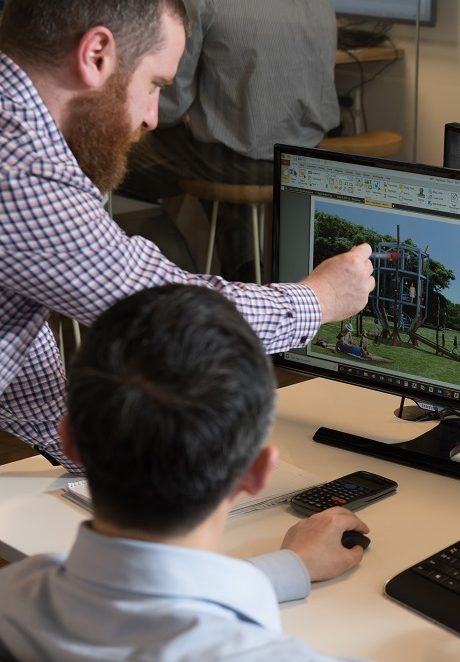
Denis working on drawings with the detailers
How do you measure success? What does a ‘job well done’ look like?
A job well done is issuing the construction package of design and drawings to the Project Manager and to Kevin Dingley, and essentially not hearing about the project again until we see photos of the completed project. That means the package was so clear and accurate that no one needs to discuss it with us further. It does happen! But due to the complex nature of some of Fleetwood’s work, discussion and coordination is often needed all the way to the end, which is absolutely fine too, if that is what is needed. Of course, another measure of success is a happy client. If they’re happy, then as a team, Fleetwood has done well.
What’s the best part of your job?
The start of projects. I like making a plan for the project, dealing with the design issues, challenging the design where I feel it’s warranted and, overall, trying to pull together something that’s favourable to everyone involved. I always try come up with ways of making life even a tiny bit easier for those who’ll end up using the design and the drawings later on. Sometimes a couple of extra hours spent in detailing can save a lot effort and time on site –that’s good for everyone. I get satisfaction in knowing we’ve made someone else’s life a little easier.
What are the biggest challenges?
Making sure every job has specifics and clarity. What I mean by that is, in order to eliminate surprises later, like clients saying, “I thought this was happening or that was happening …”, we must always be clear, concise and open with them. Generally, when this happens, jobs seem to run smoothly. I mention this a lot, but I don’t like loose, broad language when it comes to design. It can lead to grey areas, confusion and uncertainty. These are the times where you can get caught out.
How has drafting changed over the course of your career?
Technology and software has changed a lot. I don’t think Advance Steel or Tekla or any of the similar software was around when I started full time detailing about 14 years ago. I started in 2D Autocad and then learnt Strucad. That seemed very advanced at the time, but it was a fair way behind the capabilities of the software around today. That said, I’ve always believed software will only get you so far in drafting or detailing. What needs to be remembered is that extremely difficult complex structures were being built with a lot of accuracy, from hand drawings, long before detailing software was ever invented. What that tells you is the job is probably more about the person than the software. For that reason, I personally don’t think AI will ever really change what we do too much, but I’m happy to be surprised with that.
How do you spend your time when you’re not at work?
With my family. My son is a lively boy and keeps us on our toes. Weekends are busy with him playing football, swimming and going to parks. My daughter is 5 months old now and moving around a bit more, all signs point to her being just as full of energy, so fun times ahead in our house! I try to give my wife a break when possible, she does an amazing job. She’s a full-time mum at home with at least one kid at all times, but she also works around the kids. So I try to help her out however I can. I also play over 35s football for The Lakes FC. I hadn’t played competitive sport since leaving Ireland, so I’ve enjoyed playing a game every Friday night and our team is doing well.
Read Next
A coffee with Thomas Simmons, Junior Design Technician
A typical day for myself involves a lot of CAD drawing! These drawings can range from rough concept ideas, to the ‘nuts and bolts’ of how something is actually going to be constructe ...
A coffee with Brendan Jol, Assistant Project Manager
My most memorable NZ project also happened to be my first one, a 50-metre suspension bridge on the South Island.
A coffee with Dean Coote, Estimating Manager
On a typical day as Estimating Manager, you’ll most likely find me working at my desk or in a quiet zone somewhere.
